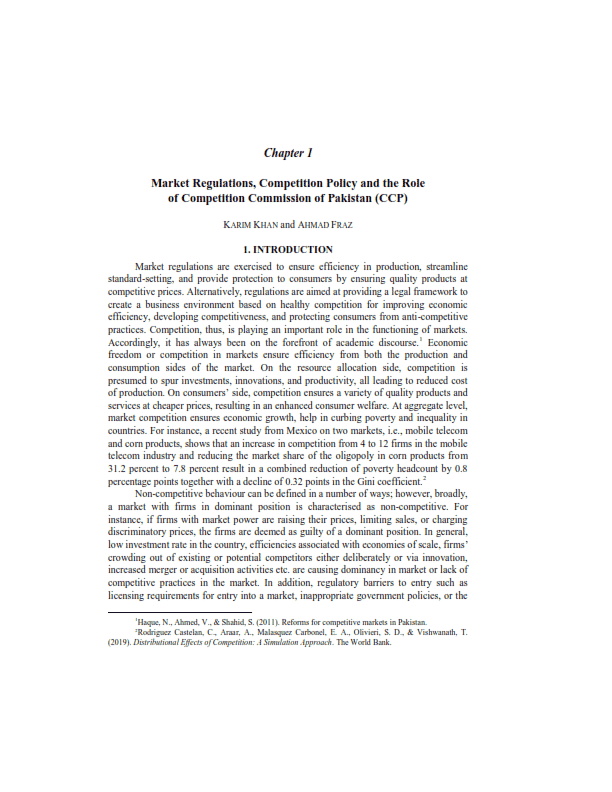Market Regulations, Competition Policy and the Role of Competition Commission of Pakistan (CCP)
Market regulations are exercised to ensure efficiency in production, streamline standard-setting, and provide protection to consumers by ensuring quality products at competitive prices. Alternatively, regulations are aimed at providing a legal framework to create a business environment based on healthy competition for improving economic efficiency, developing competitiveness, and protecting consumers from anti-competitive practices. Competition, thus, is playing an important role in the functioning of markets. Accordingly, it has always been on the forefront of academic discourse. Economic freedom or competition in markets ensure efficiency from both the production and consumption sides of the market. On the resource allocation side, competition is presumed to spur investments, innovations, and productivity, all leading to reduced cost of production. On consumers’ side, competition ensures a variety of quality products and services at cheaper prices, resulting in an enhanced consumer welfare. At aggregate level, market competition ensures economic growth, help in curbing poverty and inequality in countries. For instance, a recent study from Mexico on two markets, i.e., mobile telecom and corn products, shows that an increase in competition from 4 to 12 firms in the mobile telecom industry and reducing the market share of the oligopoly in corn products from 31.2 percent to 7.8 percent result in a combined reduction of poverty headcount by 0.8 percentage points together with a decline of 0.32 points in the Gini coefficient.




